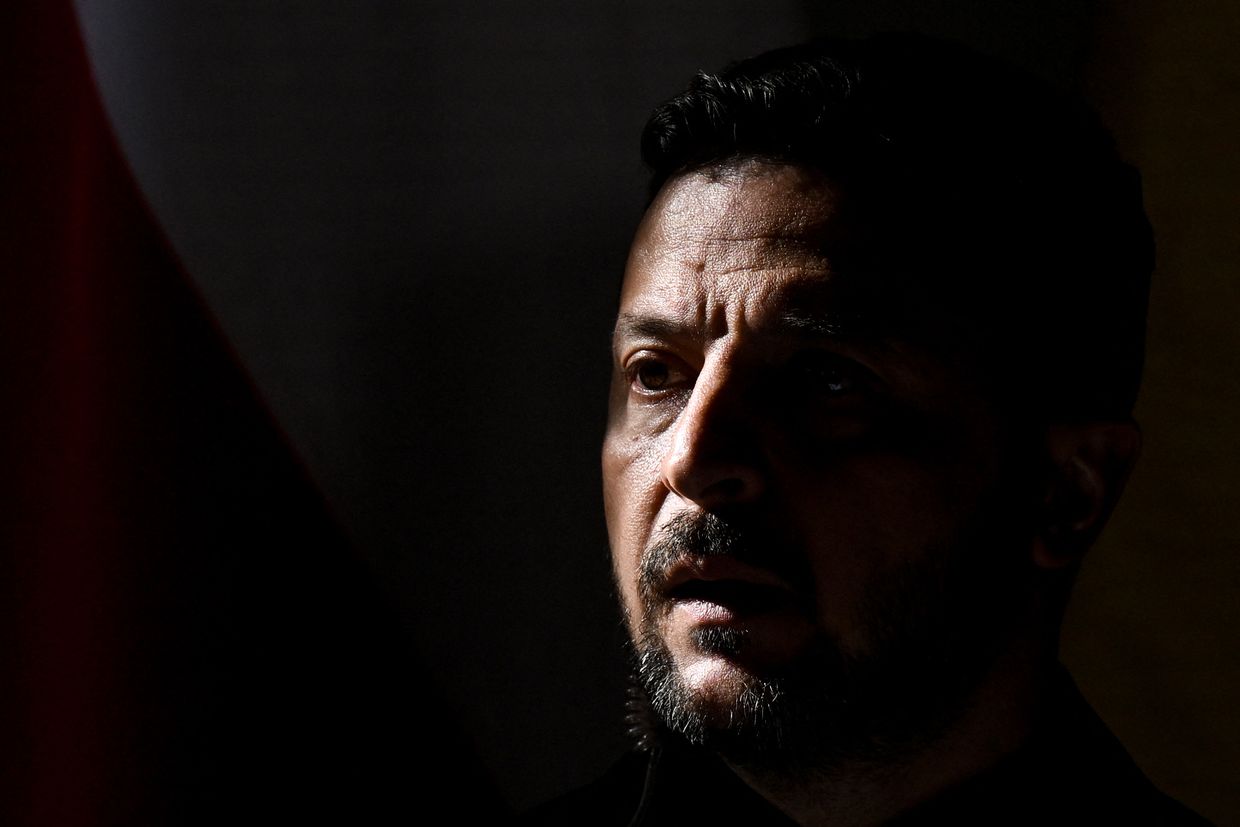Editorial: Democracy won the day in Ukraine — but it will be tested again

Protesters react after Ukraine’s parliament voted on a bill to replace a law that curbed the powers of anti-graft agencies in Kyiv, Ukraine, on July 31, 2025. (Tetiana Dzhafarova / AFP via Getty Images)

The Kyiv Independent
Today, Ukrainians have once again shown the world how to stand for democracy.
The Ukrainian parliament voted on July 31 to restore the independence of anti-corruption investigative agencies — repairing the damage that same parliament had done one week ago.
President Volodymyr Zelensky signed the bill into law immediately after.
This comes after a combined pushback from two directions: the streets of Kyiv and other Ukrainian cities, and high offices in Brussels.
Last week’s attack on anti-corruption agencies — a joint effort by Zelensky and parliament — led to the first anti-government street protests Ukraine has seen in over three years, since the beginning of Russia's full-scale war back in 2022.
The first protest didn’t work. Zelensky signed the scandalous bill last week, even as protesters gathered under his administration’s windows. But when the protests doubled in size the following day, that undoubtedly sent a sobering message.
Ukraine’s leaders have a natural sensitivity to the voice of the street, even if they pretend to snub it.
Two of Zelensky’s predecessors have seen revolutions on their watch, with one ousted by the 2014 EuroMaidan Revolution — so Ukraine’s leaders have a natural sensitivity to the voice of the street, even if they pretend to snub it.

And if that wasn’t enough, behind the scenes, calls and messages from the European Union’s leadership streamed to the government in Kyiv. Modern and independent anti-corruption agencies were a win of 2014's pro-Western revolution and a condition for Ukraine’s EU integration. The fact that the Ukrainian leadership could just take away their independence and de facto take control of them, through a submissive prosecutor general, came as a major deal breaker.
Given that the EU is a major financial donor keeping Ukraine afloat as its economy is struggling during the war, Brussels has enormous leverage over the Ukrainian government. It appears to have used it.
This is how democracy is defended — by standing up for it.
It is precisely what we called for in our editorial last week, addressing Ukraine’s European partners to end their unhelpful strategy of turning a blind eye on the backslide of reforms in Ukraine, excusing it with the extremities of the war.
The fact that the Ukrainian people, aided by a push from Brussels, were able to make their government overturn an outrageous law is a meaningful win for democracy. And democracy, globally, doesn’t see that many wins these days.
It’s also a timely reminder for other nations: this is how democracy is defended — by standing up for it. Ukrainians have demonstrated it in the past, have shown it again now, and will likely have to stand up for it in the future. Not to mention fighting against Russia for 11 years, all to stay a free and democratic country.

But does it mean that Ukraine’s democracy is beyond threat now? Of course not.
No one has been held responsible for the debacle that started the protests — the outrageous effort to undermine Ukraine’s anti-corruption agencies and roll Ukraine’s democracy back a decade.
President Zelensky undoubtedly approved of the scheme, having signed the scandalous law. Has he since had a critical look at what happened? Has he held anyone accountable around him — either for authoring the scheme or executing it at his orders without raising concerns about its dangers, as a good advisor would do? Has he reflected on his own role in it and seen that he crossed the line? There are no signs of it.
It means that the authors of this attack on Ukraine’s democratic future are still in their places and can strike again, in the same effort to consolidate more power and undermine the few remaining checks and balances.
Here are just a few things we will watch out for:
- Repercussions for leaders and participants of the street protests.
- Attacks on independent media that covered the events critically.
- Whether the government will finally appoint the head of the Bureau of Economic Security, independently selected but rejected by the Cabinet of Ministers. This was the second most persistent demand of the protesters, after the independence of anti-corruption agencies.
- What happens to the case of Zelensky’s friend and ex-minister Oleksii Chernyshov and other high-profile cases investigated by the two agencies — which likely set off the attack in the first place.
- Whether there will be other signs of pressure on the anti-corruption agencies whose independence was restored — the National Anti-Corruption Bureau (NABU) and the Specialized Anti-Corruption Prosecutor's Office (SAPO).
- What happens to the case of Vitaliy Shabunin, a high-profile anti-corruption activist who faces a criminal case that Ukraine’s civil society largely believes to be political persecution for his criticism of Zelensky. The case escalated one week before the attack on anti-corruption agencies.
- If Ukraine follows through on its commitments with its international partners to reform its Customs Service and the Asset Recovery and Management Agency (ARMA).
With this in mind, knowing that we need to be vigilant in the future, we can celebrate today.
For today was a win — for Ukraine, its people, and democracy everywhere.











